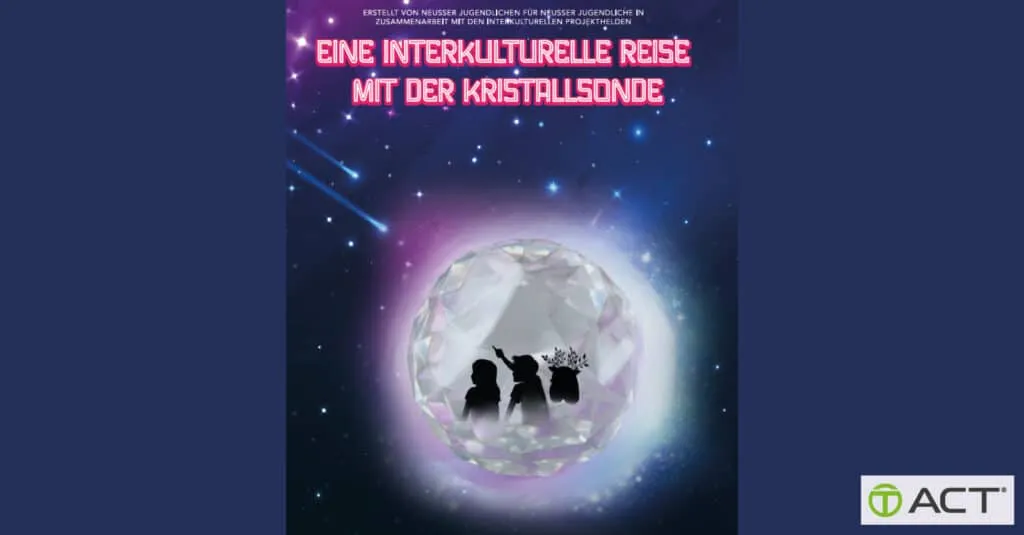There are certain language projects that are particularly close to our hearts. Proofreading a children’s book for the Interkulturelle Projekthelden e. V. (intercultural project heroes) association was such a project. The group provides German language instruction and other educational opportunities to children and teens in their area. One product of their engagement is a fairy tale that revolves around prejudice in the world.
Language is an important way to build bridges between people of all cultures and backgrounds. And language skills are vital to the ability of young people, whatever their background or ethnicity, to integrate into society successfully.
How exactly are language and integration linked? How are Interkulturelle Projekthelden succeeding in their mission? And where does ACT Translations fit in? Find out in this article.
Building bridges: The importance of language for integration
We use it to voice our opinions, explain and clarify information, ask questions and make contact. We’re talking about language, of course, an ability that is unique to humans. Without it, we couldn’t do all the things we do every day. In Germany (as in many countries), if you don’t speak the language well, you are at a disadvantage socially. That’s what makes it so important to help children and teenagers gain and perfect their command of the local language.
Language teaching begins from a very early age, through activities like looking at picture books, singing songs together and reading stories. Teenagers need support too, especially first-generation immigrants who came to Germany when they were young and thus spent their early years speaking another language. Many of them speak little or no German at home.
But they need a good command of German in order to keep up with their lessons in school. After all, whether or not a student understands a biology lesson depends less on their understanding of science than on their language comprehension skills. Language skills are also what determine the career options that are available to young people and whether they get off to a good start. They are a major key to integration.
It usually takes many years to become proficient in a foreign language. That’s why activities that support language learning are important and helpful. Reading books in the foreign language plays a huge role in the process. Using language in creative ways like singing and writing stories also sharpens language skills. In order to take some of the work off the shoulders of day care centers and schools, the Interkulturelle Projekthelden association runs various language-promoting programs in Neuss, Germany.
Language learning through intercultural projects for children
Bridge builders, culture shapers and networkers: These are just a few of the ways the “intercultural heroes” describe themselves. Founder Umut Ali Öksüz wanted to set up a space for children and teenagers from various cultural backgrounds to meet and engage in creative and educational activities.
By getting together to write songs, make videos and draw comics, young adults can discover their own talents, reinforce their sense of identity and break down prejudices through contact with different cultures, religions and countries.
Öksüz was born in Germany and immigration is part of his own story. That inspired him to promote language learning for recent and not-so-recent immigrants to his area. Projects like “FIT in German” and “My own writing workshop” help the kids improve their German and have fun doing it—often with the support of volunteers who improved their German with the association’s programs during their own formative years.
The members’ creativity knows no bounds. Working with educators, they have produced various innovative publications, including an intercultural cook book, the city guide NeussToGo and a book of biographies entitled Verschieden – aber eins (Different—but united), which the teens presented to the Minister of State for Migration, Refugees and Integration in the Federal Chancellery in 2018.
The intercultural fairy tale was also born of this work. In the story, an alien named Statera invites two brave teenagers on a trip around the world to stamp out prejudice. It’s exactly the type of work the association focuses on. The book is the impressive product of a teen group who are getting help with their language and social skills, and it’s definitely worth a read.

Proofreading the children’s book: Helping the content shine
ACT was honored to proofread and edit the children’s book. How did the process work?
Teenagers who are involved with Interkulturelle Projekthelden thought up and wrote the story. The proofreading and editing task was to retain the teens’ natural, youthful style. Our proofreader/editor checked the entire text in terms of wording, grammar, syllabification, punctuation and spelling. By collaborating with ACT, the association ensured that the young authors’ exciting tale was in perfect shape to make its way onto bookshelves.
As a language service provider, promoting the German language as a way to help integrate young people into our society is a matter close to our hearts. We are delighted to provide services to Interkulturelle Projekthelden on an ongoing basis.
The “Interkulturelle Projekthelden” group have their say
“We are thrilled with the collaboration with ACT. This kind of teamwork is of fundamental importance for us because we carry out print projects regularly, so we depend on services like this. This also helps make our structures in areas like language and media more professional.
In addition to the publications already noted, we have also created themed posters to go with our project on sexualized violence and education around this topic. We’re already working on our next project, An audiobook about holidays around the world. Like the name says, it will be about holiday traditions in various cultures and ethnic groups. It is intended to bring us closer together, build bridges together, and solidify these bonds.” – Umut Ali Öksüz






